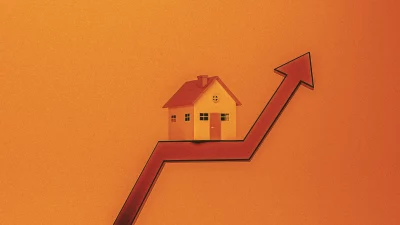The Dark Side of Disasters: Price Gouging on Rentals After the Eaton Fires in California

Natural disasters have a way of exposing both the best and the worst in humanity. While stories of neighbors helping each other and communities banding together often dominate headlines, an unsettling undercurrent emerges during these crises: price gouging. Following the devastating Eaton fires in California, which left countless families displaced, reports of skyrocketing rental prices have brought this issue into sharp focus.
The Aftermath of the Eaton Fires
The Eaton fires tore through California communities, destroying homes, displacing residents, and creating an immediate need for temporary housing. As survivors scrambled to find shelter, the demand for rental properties surged. Basic economics might suggest that increased demand naturally pushes prices higher in such situations. However, the sharp and often exploitative price hikes observed in many affected areas have gone beyond simple supply-and-demand dynamics, crossing into price gouging.
What Constitutes Price Gouging?
Price gouging refers to raising prices to unreasonable or unfair levels during emergencies or disasters. In California, the law is clear on this matter. Under Penal Code Section 396, increasing the price of housing, goods, or services by more than 10% after declaring a state of emergency is illegal. This law is designed to protect vulnerable populations from opportunistic practices during crises. Yet, enforcement remains a challenge, and many displaced families find themselves at the mercy of landlords and property managers willing to exploit the situation.
The Human Cost of Rental Price Gouging
For families already reeling from the trauma of losing their homes, price gouging adds insult to injury. The financial strain of paying exorbitant rental rates can lead to long-term economic hardship. It could force some to relocate far from their communities. Beyond the financial impact, the emotional toll of being priced out of one’s hometown exacerbates the feelings of loss and instability that disaster survivors face.
Why Does Price Gouging Happen?
While some landlords and property managers cite increased operating costs or market demand as justification for raising rents, the reality often points to opportunism. The lack of sufficient regulatory oversight and the desperate circumstances of displaced residents create a perfect storm for exploitative practices. The post-disaster housing shortage also underscores a systemic issue: a lack of affordable and resilient housing in disaster-prone areas.
How Can We Address This Issue?
More vigorous Enforcement of Laws: Authorities must prioritize investigating and prosecuting price-gouging cases. Public awareness campaigns can help residents recognize and report illegal practices.
Increased Emergency Housing Solutions: Governments and nonprofits should collaborate to establish more robust temporary housing options for disaster survivors. This could include deploying modular homes, converting unused buildings, or subsidizing hotel stays.
Long-Term Housing Reform: Investing in affordable housing and ensuring stricter building codes in disaster-prone areas can reduce residents’ vulnerability and minimize the need for temporary housing in future crises.
More on the Wild Fires.





Another problem popping up is that people of means are creating bidding wars on rentals. Similar to the housing bidding was which is increasing pricing. This is even harder to police and may or may not be illegal as well